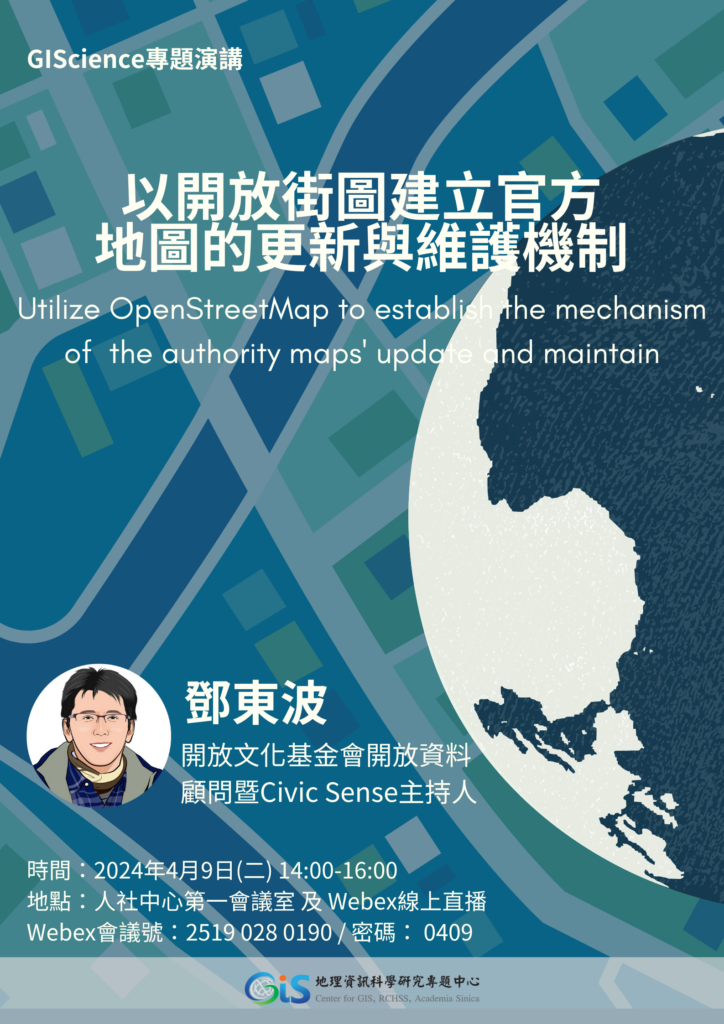![]() ∥
∥ ![]() ∥ 中研院 ∥ 人社中心 ∥ 繁體中文 ∥ English
∥ 中研院 ∥ 人社中心 ∥ 繁體中文 ∥ English
講者:鄧東波 (開放文化基金會 開放資料顧問暨Civic Sense主持人)
講題:以開放街圖建立官方地圖的更新與維護機制 (Utilize OpenStreetMap to establish the mechanism of the authority maps’ update and maintain)
時間:2024年4月9日(二) 14:00-16:00
地點:人社中心第一會議室 及 Webex線上直播
Webex會議號:2519 028 0190 密碼:0409
Abstract: OpenStreetMap (OSM) is a well-known crowdsourced map collaboratively created by global communities. The data production of OSM relies on a geographical data model enabling volunteers to collaboratively contribute their data on the single platform. The data production mechanism of OSM actually gets attention from map authorities which attempt to move towards a collaboration-based framework for updating their maps. However, the data production of map authorities is required to be compatible with institutional policies and standards. The top-down approach of map authorities is actually different from the bottom-up approach of OSM. There is a gap between OSM’s collaborative model and the institutional model of map authorities. To embed the OSM framework into the production mechanism of map authorities, the research starts with investigation of the differences in feature models between OSM and the map authority of Taiwan. According to the investigation of the feature models, data transformation tools have been designed to transfer institutional data to OSM. The data transformation enables the institutional data providers to contribute their data on the OSM-based map platform. The institutional data providers can be surveyors of the map authority or other agencies taking charge of geographic data such as river, land covers, forest, etc. This OSM-based collaboration model is actually created for instructional data contribution but not for crowdsourced data contribution. Moreover, the insertion of the OSM mechanism in map authorities certainly has impacts and conflicts with institutional data production. This research analyzes the possible impacts and conflicts. It would be valuable for map authorities to adopt the collaborative model for their data production.
